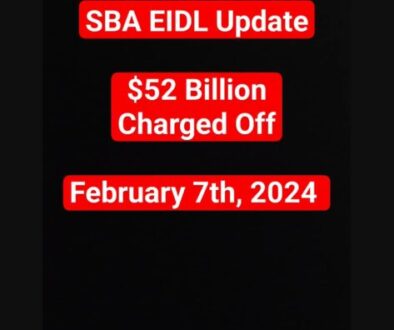Need advice about your SBA EIDL loan? Schedule a Case Evaluation.
In today’s update, I would like to delve into the current state of affairs regarding the liquidation of business assets and shed light on what appears to be an increasingly absurd approach by the Small Business Administration (SBA).
Recently, a client forwarded me an email they received from the SBA, outlining their requirements for asset liquidation. According to the email, if the borrower intends to sell their assets, the SBA expects them to identify personal assets that can be used as collateral to replace the assets being sold.
Now, hold on a moment… Did I read that correctly? I’ve screenshot the email and posted below.

What I THINK is happening here is that the SBA is like “Oh, if you want our permission to sell business assets, that’s good for you (even though it doesn’t benefit the business owner all that much), and therefore we are going to ask for you to pledge personal assets, which is good for us.”
Of course, this line of thinking ignores the fact that ALL THE SALES PROCEEDS WOULD BE REMITTED TO THE SBA. In other words, they’re trying to double dip: give us the proceeds from the sale AND give us more collateral.
Considering the fact that the SBA itself will not be directly involved in these liquidations, and instead relies on borrowers to handle the process (due to the fact that there are almost 4 million EIDL loans), it seems outrageous for them to demand that individuals provide additional personal assets as a replacement for the collateral being sold.
The sheer audacity of such a request from SBA is truly perplexing, and likely going to reduce the amount the SBA recovers from the sale of assets. In other words, their demands will result is less dollars collected, not more.
In fact, one could argue that it might be in the borrowers’ best interest not to cooperate with the liquidation process at all. By withholding their assistance, they can potentially avoid being asked to pledge their personal assets as collateral for the loan.
It’s a disheartening realization that being helpful and cooperative during the liquidation process might actually result in unfavorable consequences for the borrowers.
This kind of decision-making reeks of classic government thinking, where arbitrary decisions are made without considering the real-life implications. It seems as though someone in a position of authority made this demand without fully comprehending the practical ramifications it would have on borrowers. The lack of foresight and consideration for the individuals involved is truly disheartening.
Given the two options presented to borrowers: either 1) abstain from assisting with the liquidation and avoid the potential risk of pledging personal assets, or 2) invest significant time and effort into finding buyers for the assets only to be burdened with the request for additional collateral, it becomes evident that the decision is quite simple. Many will opt to wait until the SBA takes action to collect the assets (which frankly, is unlikely due to the SBA’s lack of infrastructure to do so) or simply abandon the assets, rather than going through the hassle of selling them and potentially facing further complications.
What exacerbates the situation is the apparent absence of any room for compromise. It appears that the SBA is not open to negotiations or willing to consider any form of forgiveness. With no possibility of finding common ground, there seems to be little incentive for borrowers to generate goodwill or cooperate with the SBA.
It’s truly disheartening to witness the SBA penalize individuals who genuinely strive to do the right thing by selling their assets. Instead of being rewarded for their efforts, they are met with unnecessary demands and hurdles.
It serves as a stark reminder of the flaws within our governmental systems and raises concerns about the efficacy of the SBA’s approach. It is disconcerting to witness how the actions of government entities can hinder the very progress they aim to facilitate.
At this point, I’d call on the SBA “powers that be” to start implementing common sense measures for EIDL loans, both in terms of asset liquidation and Offer in Compromise.
The current positions that the SBA is taking are simply bad business decisions:
If the SBA continues to require business owners to pledge personal assets in order to sell business assets, the business owners simply won’t sell the assets.
If the SBA continues to reject Offer in Compromise and won’t consider EIDL loan forgiveness, the loans will be referred to Treasury, where they will likely collect less than they would if they took a realistic approach to SBA OIC and forgiveness.
I fully recognize that at this point, I’m likely just howling into the wind. The SBA doesn’t care what I think.
With that said, as an advocate for EIDL borrowers, I think it’s important to discuss these issues so that EIDL borrowers can make informed decisions about how they wish to interact with the SBA.

